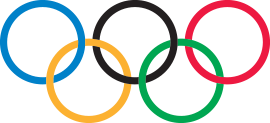Muaythai Values
Honour – This requires the involvement of all Muaythai stakeholders: showing respect for one another, towards the rules and regulations of IFMA, and upholding a spirit of solidarity.
Tradition – The fostering of Muaythai’s historical roots and all cultural aspects and customs inherent in the sport from its ancient origins.
Respect – The practice by all IFMA stakeholders of a respectful involvement regardless of race, age, gender, sexual orientation, disability or nationality.
Excellence – Promoting the highest levels of achievement in competition, coaching, and officiating.
Fair Play – The provision of a level playing field for competition, encouraging sportsmanship, efficiency, and transparency in the operations of IFMA, as well as strict adherence to the World Anti-Doping Code.
IFMA Stakeholders
IFMA operates in a variety of different contextual levels, with a myriad of different regulatory bodies and institutions. The different political and administrative contexts which IFMA must navigate through, require flexibility and adaptability from the organisation, without a loss of its core values. IFMA tries to maintain a healthy balance between the needs and interests of the entities with which it interacts
Internal Stakeholders
• Athletes – elite athletes, national team level, local and grassroots practitioners
• Coaches – national, local and grassroots coaches
• Officials –IFMA’s Technical Commission, and world, continental, national, state, and club level referees, judges, and technical officials
• Administrators – IFMA’s International Office staff, Executive Board members, Commission Members, and national representatives
• National Federations – One hundred and one (101) Recognised NFs
• Continental Federations – five continental bodies: Federation of Amateur Muaythai of Asia, African Continental Muaythai Association, Pan-American Muaythai Union, Oceania Muaythai ederation Amateur, European Muaythai Federation
External Stakeholders
• Athlete supporters – family members, personal fan base, and gyms
• Spectators – live audiences at events, via television, and online
• Media – in print, electronic, and internet forms
• Commercial partners – sponsors and approved equipment manufacturers
• Sport Representative Bodies – SportAccord, OCA, TAFISA, and National Olympic Committees
• Games Bodies – SportAccord World Combat Games, Arafura Games, TAFISA Sport for All Games, Asian Indoor & Martial Art Games, SouthEast Asian Games, and Asian Games
• Sport Regulatory Bodies – WADA and CAS
• Government Departments – National Sports Ministries, National Tourism Ministries, and Foreign Ministries

